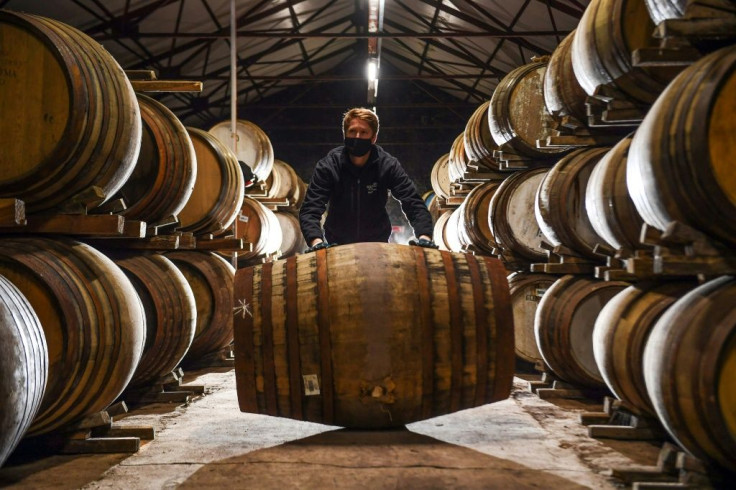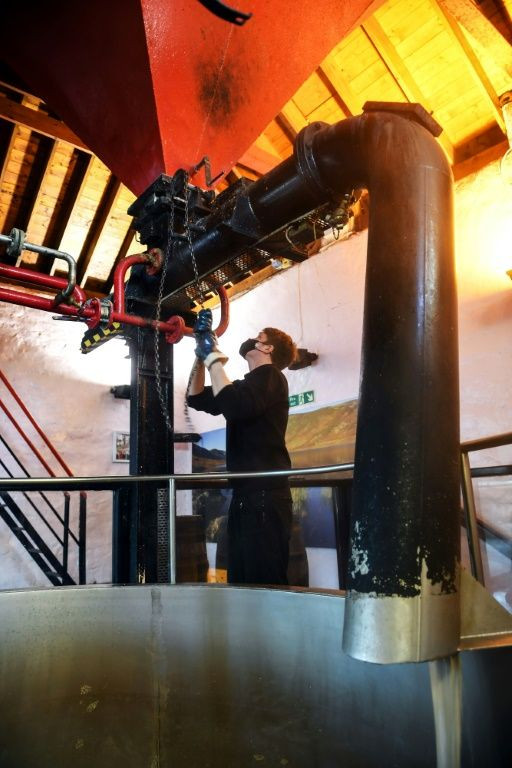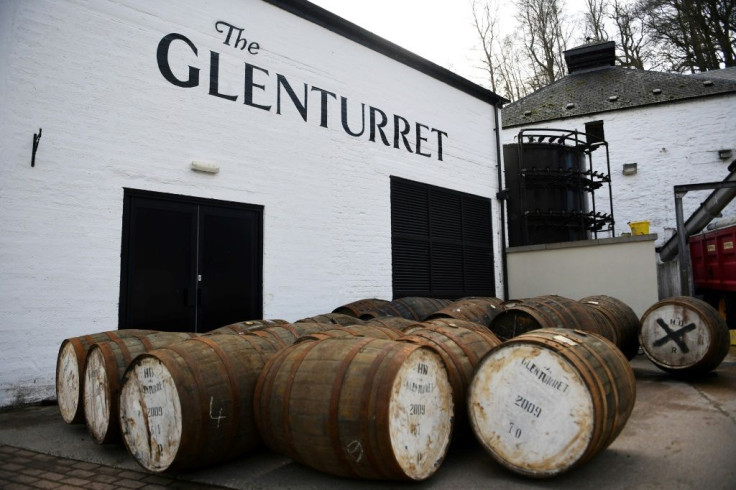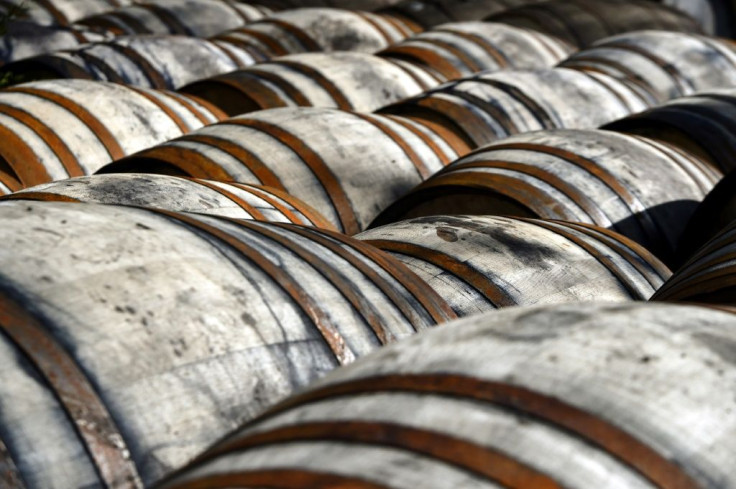Scottish Distillery Looks To History To Lift Spirits
It has survived world wars, Prohibition and The Great Depression but this may very well be the toughest time yet for Scotland's oldest whisky maker.
The Glenturret Distillery, located on the banks of the River Turret two miles (3.2 kilometres) northwest of the town of Crieff, was established in 1763 and is a popular stop for whisky enthusiasts.
Apart from the rushing river and a distiller rolling oak barrels into a filling house, The Glenturret, which closed to visitors during the Covid-19 lockdown, is eerily quiet.

Travel restrictions that came with the pandemic have caused sales to fall at the distillery, in pubs and restaurants, and at airport duty-free shops.
But it is a 25 percent tariff on Scotch imposed by the United States in October 2019 and now a slow-down in exports to Europe after the end of the Brexit transition that is hitting profits the hardest.
"It has been a really tough period for us with Covid, US tariffs and Brexit as well," the distillery's managing director, John Laurie, told AFP.
"Covid in particular affects our tourism. Then the export markets have been impacted by Brexit and Scottish whisky tariffs in America have been really troublesome."

Laurie said the increased paperwork and export requirements after Britain's departure from the European single market on December 31 had delayed shipments to the bloc.
The distillery warns customers on its website that shipments to the EU have been put on hold while it tries to get deliveries going again.
"We have great demand over in Europe and we have the will to try and supply them, so where there is a will there's a way -- and we will find a way through this tough period," said Laurie.

The troubles faced by The Glenturret are shared across the whisky industry.
According to the Scotch Whisky Association (SWA) in February, global exports of Scotch fell by more than ?1.1 billion ($1.5 billion, 1.3 billion euros) to ?3.8 billion in 2020.

Exports to the EU fell by more than 15 percent to ?1.25 billion in 2020, it added.
The impact on sales after the post-Brexit transition are yet to be measured but are also expected to take a heavy knock.
Tariffs on exports to the United States -- the industry's most valuable market -- were imposed after a dispute between the EU, UK and US governments over subsidies granted to aerospace companies Airbus and Boeing.
Before the levy, the US market for Scotch was valued at ?1.06 billion. By 2020 it had fallen by 32 percent to ?729 million.
SWA chief executive Karen Betts said the figures were "a grim reminder" of the challenges faced by distillers in Scotland, where some 10,000 people are directly employed by the industry.
"In effect, the industry lost 10 years of growth in 2020 and it's going to take some time to build back to a position of strength," she said after the release of the figures earlier in February.
Betts said Scotch whisky was losing considerable ground in the United States due to the tariffs that could have been avoided had the UK, EU and US governments and the European and American aerospace industries been "less intransigent".
"That governments and companies have allowed their dispute to continue while the livelihoods of real people, and the future of one of Scotland's oldest industries, are put at stake reflects badly on them," she said.
The SWA has pleaded with the governments involved to immediately suspend the tariffs and end a trade war that it "has nothing to do with".
The distillery, Laurie said, would draw on its history to make it through one of its most challenging periods.
"We've been through the prohibition era in America, we've been through wars, we've been through many different situations in our global economy and we still survived and came through," he said.
"We are an incredibly old and resilient industry and fortunately we have a product that people enjoy around the world, so although times have been incredibly difficult, we just know we're going to get through it."
© Copyright AFP 2024. All rights reserved.





















